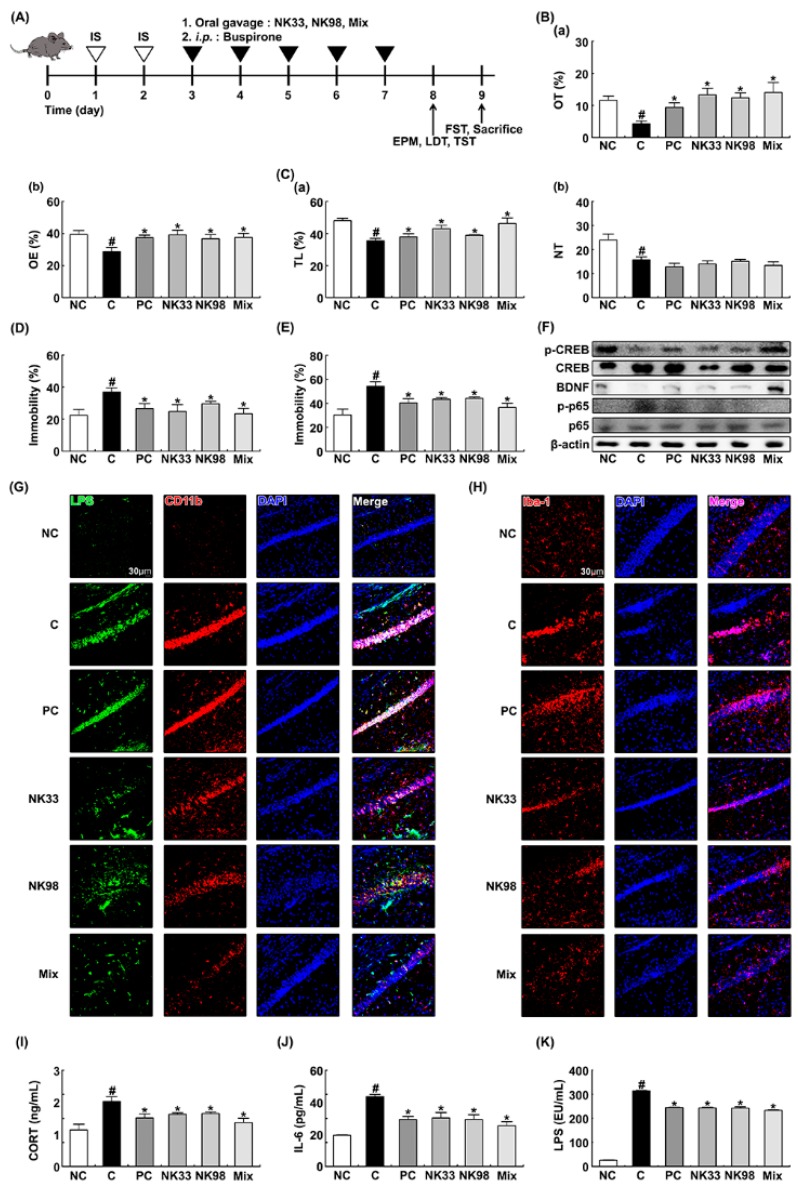Figure 2.
Oral administration of Lactobacillus reuteri NK33 and/or Bifidobacterium adolescentis NK98 attenuated IS-induced anxiety/depression and hippocampal inflammation in mice. (A) Procedure. Effects on anxiety/depression-like behaviors in elevated plus maze (B: (a), OT; (b), OE), LDT (C: (a), TL; (b), NT), tail suspension (D), and forced swimming (E) tasks. (F) Effects on hippocampal BDNF expression, and CREB and NF-κB activation. Effects on the infiltration of LPS+/CD11b+ (G) and Iba1+ cells (H) into the hippocampus. Effects on blood corticosterone (CORT, I), IL-6 (J), and LPS levels (K). Mice were exposed to IS and test agents (C, vehicle [1% maltose]; NK33, 1 × 109 CFU/mouse/day of NK33; NK98, 1 × 109 CFU/mouse/day of NK33; Mix, 1 × 109 CFU/mouse/day of the (1:1) mixture of NK33 and NK98]; and PC, 1 mg/kg/day of buspirone) were gavaged (for vehicle, NK33, and NK98) or intraperitoneally injected (for buspirone) daily for 5 days. Normal control group (NC), not exposed to IS, was treated with 1% maltose instead of test agents. Hippocampal p65, p-p65, CREB, p-CREB, BDNF, and β-actin were analyzed by immunoblotting. Blood IL-6, corticosterone, and LPS were assayed by ELISA kits. Iba1+ and LPS+/CD11b+ cells were measured using a confocal microscope. Data values were indicated as mean ± SEM (n = 7). # p < 0.05 vs. NC group. * p < 0.05 vs. IS alone treated group.

